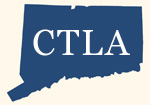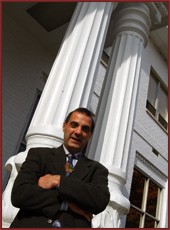
We will do our part to make sure that you get the best legal representation possible.

CT Trial Lawyers Association


State of CT Judicial Branch
|
Tips for Filing a Personal Bankruptcy
There are two main ways to file a personal bankruptcy in Connecticut. People have the option of filing either a Chapter 7 or Chapter 13 bankruptcy. Both types of bankruptcy have different advantages, depending on the individual's financial situation. There are a few things everyone should know when deciding to file for either Chapter 7 or Chapter 13 bankruptcy.
Chapter 7 Bankruptcy
Chapter 7 bankruptcy is a liquidation of assets. It is commonly used when a person has little property, except for the basic necessities. It is also filed when someone has little or no money left after paying basic expenses each month, or aren't meeting those expenses at all. When filing for Chapter 7 bankruptcy, a person must first be proven eligible by a means test. To be eligible for Chapter 7 bankruptcy, the filer must ear below the median Connecticut income. The benefits of Chapter 7 bankruptcy are:
- The process moves quickly
- Most unsecured debts are completely erased
- Creditors are no longer allowed to contact you
Chapter 13 Bankruptcy
Those who aren't approved for Chapter 7 bankruptcy can file for Chapter 13 bankruptcy. Chapter 13 can be used to erase debts that Chapter 7 doesn't cover, such as student loans and taxes. In order for someone to be eligible for Chapter 13 bankruptcy they must earn a disposable income, meaning they have money left over each month after paying for necessities. Someone who wants to file for Chapter 13 bankruptcy must also submit a plan proposal that will show how the outstanding debts will be paid off between three and five years. The benefits of Chapter 13 bankruptcy are:
- Only one monthly payment is made to the bankruptcy trustee who will distribute the money to the creditors
- A person has 3-5 years to catch up on delinquent accounts
- Most of a person's property can be kept
Back to Main
|
*Free Initial Consultation*
Evening & Weekend Appointments Available



New Haven County
Bar Association

|
















